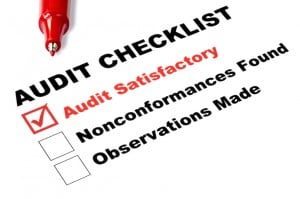
(April 1, 2011): Skilled Nursing Facilities (SNFs) are again in the spotlight. A recent report likely signals an increase in future SNF Audits. The Prospective Payment System (PPS) under which SNFs are reimbursed by Medicare has long been criticized by many concerned with "benefit integrity" and curbing waste, fraud, and abuse in the Medicare program. Critics argue that because the SNF reimbursement rate is prospective in nature and largely commensurate with the extent of skilled services provided to a beneficiary, SNFs will be more likely to provide unnecessary or unreasonable services for beneficiaries, thus increasing their reimbursement rates. For example, simply increasing the number of minutes of therapy a beneficiary receives (or providing a second or third therapy modality) could upgrade the Resource Utilization Group (RUG) to which the patient has been assigned, thereby resulting in a substantially higher reimbursement rate for the provider. This concern has prompted increased scrutiny and rising SNF audits by ZPICs looking at the SNF's billing practices.
I. Questionable Billing Practices by Skilled Nursing Facilities are Leading to Increased SNF Audits:
The Office of the Inspector General of the Department of Health and Human Services (OIG) recently released a report last December 2010 entitled "Questionable Billing Practices by Skilled Nursing Facilities" (Report No. OEI-02-09-00202). The three chief objectives of this report were to:
Ascertain the extent to which billing practices by Skilled Nursing Facilities (SNFs) changed between 2006 and 2008;
Determine the extent to which billing varied by type of SNF ownership in 2008; and
Identify SNFs that engaged in questionable billing practices in 2008.
The OIG analyzed all Part A SNF claim line items from 2006 and 2008, including the types of RUGs billed by SNF, beneficiary characteristics, and the average length of stay in the SNF for each beneficiary. OIG specifically focused on SNFs that billed frequently for higher paying RUGs (or "therapy RUGs"), namely those falling under the "Rehabilitation" or "Rehabilitation Plus Extensive Services" categories. Based on the data it reviewed, HHS-OIG reached several conclusions regarding the billing practices of SNFs between 2006 and 2008, most notably:
The percentage of "Ultra High" therapy RUG placements (corresponding with the highest possible reimbursement rates) increased substantially between 2006 and 2008, while RUG assignment rates for all other categories decreased or remained static. This increase in "Ultra High" therapy RUG billing represented approximately $5 billion in additional Medicare payments to SNFs between 2006 and 2008.
For-profit SNFs were more likely than non-profit or government SNFs to bill for higher paying RUGs.
Three quarters of all SNFs had up to 39% placement rates in "Ultra High" therapy RUGs.
The OIG then outlined several recommendations based on its conclusions, one of which entailed increased oversight of SNFs that bill for higher paying RUGs:
CMS should instruct its contractors to monitor the SNFs billing for higher paying RUGs using the indicators discussed in this report. Specifically, the contractors should determine for each SNF: (1) the percentage of RUGs for ultra high therapy; (2) the percentage of RUGs with high ADL scores, and (3) the average length of stay. CMS should develop thresholds for each of these measures and instruct contractors to conduct additional reviews of SNFs that exceed them. If SNFs from a particular chain frequently exceed these thresholds, then additional reviews should be conducted of the other SNFs in that chain.
Contractors should use this information to target their efforts to more effectively identify and prevent inappropriate billing. Contractors could conduct medical reviews of a sample of claims from SNFs that exceed these thresholds. Contractors could use their findings to recover inappropriate payments, to place certain SNFs on prepayment review, and to initiate fraud investigations.(emphasis added).
Essentially, the OIG has advised that SNF audits need to be a priority. In response to this recommendation, the director of the Centers for Medicare and Medicaid Services (CMS) remarked,
The CMS concurs….We will use the results of this review to determine whether additional safeguards, including thresholds, shall be put in place by the Medicare Administrative Contractors (MACs) to target their efforts to identify and prevent inappropriate billing…CMS will share the HHS-OIG report and any additional claims information with the appropriate Medicare contractors to consider the issues identified in this report when prioritizing their medical review strategies and other interventions. (emphasis added).
The message to Medicare contractors is thus crystal clear: SNFs, especially those that have a significant placement rate for "Ultra High" therapy RUGs- should be increasingly targeted for SNF audits. Meanwhile, OIG has shown no signs of relenting in its scrutiny of SNFs, noting in its 2011 Work Plan that:
We will review the extent to which payments to SNFs meet Medicare coverage requirements… We will conduct a medical review to determine whether claims were medically necessary, sufficiently documented, and coded correctly during calendar year (CY) 2009.
Providers should ensure that their medical records and documentation satisfy applicable regulations and that they have an effective compliance plan in place to deter future audits. Otherwise, SNFs targeted for review could face the imposition of prepayment review status, payment bans, or civil monetary penalties (CMPs).
II. SNF Audit Areas of Focus by Medicare Contractors:
Based on the concerns raised by the OIG, Zone Program Integrity Contractors (ZPICs), MACs, other Medicare contractors conducting audits of SNFs are likely to focus on the following issues:
Proper RUG Placement: SNF care must be provided at the appropriate level. This means that all services are necessary and reasonable and information entered on all Minimum Data Sets (MDS) for each beneficiary is complete and accurate. Contractors will closely scrutinize all RUG assignments, particularly those falling under the "Ultra High" therapy category.
Necessity and Reasonableness of Therapy Care: All therapy services must be consistent with the nature and severity of the beneficiary’s illness or injury. In many instances, contractors may question the therapy modalities provided to a beneficiary, the amount of therapy a beneficiary receives, or even the activities in which a beneficiary participates during therapy.
Provision of Skilled Care: All care provided by an SNF must be "skilled," meaning that it can only be safely or effective provided by technical or professional personnel, such as nurses or therapists. Contractors will often conclude that skilled care is not supported by documentation that is vague, generic, or repetitive.
Providers should review their medical documentation and related policies to ensure that, at a minimum, all of the elements and requirements discussed above are adequately addressed. There are also a number of additional steps providers can take to limit their liability in any future audits.
III. Recommendations for Providers to Prepare for a SNF Audit:
- Tailor Each Care Plan to the Beneficiary’s Individual Needs: As discussed above, care provided by an SNF must be necessary and reasonable, meaning that it is consistent with the beneficiary’s illness or injury. This is essentially a principle of proportionality. Providers should ensure that all RUG classifications and care plans created for beneficiaries, especially therapy care plans, are tailored to the beneficiary’s individual needs and designed to address the beneficiary’s functional deficits. Contractors will be on the look out for RUG assignments or care plans that provide for overly extensive services or excessive treatment modalities.
- Maintain Detailed Medical Records: SNFs must provide beneficiaries with "skilled" care, so all documentation should be sufficiently detailed to reflect the technical or specialized knowledge of the SNF staff. To reduce possible exposure in a SNF audit, SNFs should also amply document all activities related to management and evaluation of beneficiary care plans, observation and assessment of beneficiaries’ medical conditions, any beneficiary education services regarding self-care, or any therapeutic exercises conducted with the beneficiary.
- Ensure that the MDS is Consistent with the Beneficiary’s Clinical Record: The first document a contractor will scrutinize when it questions a RUG placement will be the MDS. Contractors will often argue that the information coded on the MDS is inconsistent with the clinical record. Providers should thus ensure that all data entered on every MDS is supported by the corresponding clinical record. A more robust record will make it much harder for a contractor to successfully challenge a RUG classification.
- Consult Qualified Counsel: The consequences of an audit can be financially devastating to a provider. In light of increased scrutiny from Medicare contractors and the overall complexity of the medical review process, providers should consult qualified counsel if they have concerns regarding the sufficiency of their medical documentation or a potential audit. Counsel can assist providers with designing and implementing a comprehensive compliance plan or, if necessary, effectively responding to an audit initiated by a Medicare contractor. Liles Parker attorneys and staff have extensive experience handling both (a) administrative appeals of denied claims in post-payment audits by ZPICs and PSCs, and (b) working with therapy and other providers to devise effective compliance plans and provisions designed to assist these providers in meeting their statutory, regulatory and administrative obligations under the Medicare and Medicaid programs.
In our opinion, Medicare contractors (including ZPICs, PSCs and RACs), acting at the direction of CMS and the OIG, will continue to expand their SNF audit efforts, particularly those with a significant number of beneficiaries assigned to "Ultra High" therapy RUGs. Accordingly, SNFs should review the quality and sufficiency of their documentation and implement comprehensive compliance efforts to deter potential audits. Therefore, it is imperative that affected providers immediately take steps to assess their current practices and take remedial steps to correct any deficiencies identified.

Robert W. Liles, J.D., M.B.A., M.S., serves as Managing Partner at Liles Parker, Attorneys & Counselors at Law. Our attorneys and staff have extensive experience representing Medicare providers in post-payment audits of skilled therapy (PT, ST and OT claims) and related skilled nursing services claims by ZPICs and other contractors reviewed in connection with SNF audits. Should you have questions regarding this article or the defense of post-payment audits, please give us a call for complimentary consultation. We can be reached at 1 (800) 475-1906.
